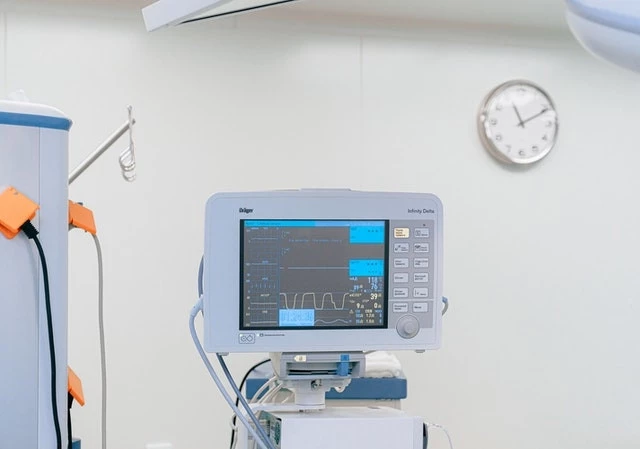Big Pharma Cannot Afford to be Lost in Translation
Add bookmark
Medical device growth is outpacing pharma industry. Europe accounts for about 30% of world revenues for medical equipment, the regulations for translation of medical devices in the EU affect a large portion of global device distribution; there are challenges in translation and communicating science in a multilingual world dominated by the de facto language of English. The EU alone has 23 mother tongues.
Since more and more clinical research and drug manufacturing are being done in multiple countries and in multiple languages, quality language services can help bring a drug to market faster, and can help streamline the clinical trial process. Translation may be required at many stages, including clinical research, regulatory submission and review, production and marketing. Moreover, expansion of the EU block into new member countries is also driving increased demand for medical and pharmaceutical translation services.
Technical translation is an art and a scientific process. Not understanding the crucial role of a technical translator is running blind in terms of competitive advantage; this person will be the ultimate responsible for the company’s bottom line – without a proper translation, no drug or medical device will have Marketing authorization.
If you do not understand, you cannot translate.
“The hallmark of a good scientific translator is intellectual honesty and a sixth sense to realize that something is amiss.”(Henry Fischbach)
Knowing a foreign language alone is simply not enough. The plain truth of technical translation is that if the translator does not understand the original text, Gordon Gekko’s “there ought to be a picture of you in the dictionary under persistence kid” (*) does not apply.
Index: Directive 2001/83/EC (**); Costs; Metric Conversions, Diacritical Marks;Patent Effect; Cross-Cultural Communication
Directive 2001/83/EC (Guideline on the readabilityof the labeling and package leaflet of medicinal products for human use)
Article 5 -requires that the particulars to be included in the labeling shall be easily legible, clearly comprehensible, and indelible
Article 59(3)- provides that the package leaflet shall reflect the results of consultations with target patient groups to ensure that it is legible, clear, and easy to use
Article 63(2) - requires that the package leaflet must be written and designed to be clear and understandable, enabling the users to act appropriately, when necessary with the help of health professionals. The package leaflet must be clearly legible in the official language or languages of the Member State(s) in which the medicinal product is placed on the market.
Each country has specific legislation about the legibility of product information with particular relevance to the correct translation of all foreign terms, including data resulting from clinical trials. Some countries allow for a second “helping” language exception, under special circumstances.
[inlinead]
Costs
Developing a new medicine is a costly and long process. A faulty translation can result in market delay or lead to product recalls. Inaccurate translation of medical devices means they will not get in the market, or are defective and must be withdrawn.
The associated costs are too huge to portray. The Portuguese national agency for medicines, INFARMED, sends an average of four daily mandatory recalls to the pharmacies; 60% of those recalls come from inaccuracies due to bad translations affecting the leaflet and/or package labeling.
Metric conversions, Diacritical marks
It is especially important that any software used in the translation process supports internationalization functions.
Any drug leaflet or medical device needs translation into the local language including special characters and metric conversions. TheSI(“Système international d'unités”) is the world's most widely used system of measurement and any good translator needs to know how to convert units of measurement, especially because English speaking countries still use thesystem of Imperial units that is not accepted or understood in other countries.
NASA wrote specifications for a launch vehicle in metric units but the subcontractor implemented them in Imperial units. When they tried to launch the vehicle, it exploded.
Diacritical marks, such as the acute (´) and grave (`) are often called accents.
The correct usage of diacritics can be difficult at first for people who are only familiar with English spelling, but they are essential because the same word may have three different meanings, such as Portuguese “a” (the); “á” (at (hours)); “à” (to(place)).
Addresses and telephone numbers have different “readings” in different countries; in The Netherlands, a valid postal code includes four numbers followed by a space and two letters (e.g., “2714 GE”). Many software applications would reject such an entry as invalid, and thus make the address field unusable in that country.
Patent Effect
The majority of medical devices have new patents and oftentimes the instruments have bizarre names that have no clear connection with the device.
One good example is the use of “slap hammer,” an undifferentiated tool, as the name of a medical hook.
Cross-Cultural Communication
Good translation is all part of successful cross-cultural communication. Idiomatic phrases are a particular problem, as they differ dramatically between cultures.
The word ‘protocol’ has different meanings in different languages, to the extent that the committee preparing the ISO 14155 standard had to use the term ‘Clinical Investigational Plan’ instead, to facilitate translation to many languages.
It takes two to Tango – cost cutting and underrating the work of a good technical translator is just as saying “We’re on a road to nowhere, come on inside, Takin' that ride to nowhere ,we'll take that ride.” (**)
(*)Wall Street - American drama film
(**)Directive 2001/83/EC of the European Parliament and of the Council of 6 November 2001 on the Community Code Relating To Medicinal Products for Human Use, amended by Directive 2002/98/EC, Directive 2004/24/E and Directive 2004/27/EC.
(***)Talking Heads – “Road to Nowhere”
|
|
Have Your Say Rate this feature and give us your feedback in the comments section below |













